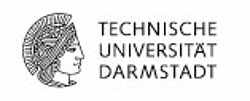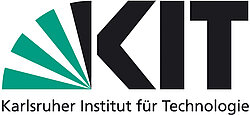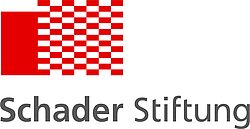Workshop: Responsible Research and Innovation in Synthetic Biology
Artikel vom 30.06.2014

What is required for responsible research and innovation (RRI) in the field of Synthetic Biology? The Workshop discussed topics, questions, models and issues within four major themes: Value sensitive design, Conditions for Co-Responsibility, Responsible Representation as well as Monitoring and Regulation.
Beginn: 23.06.2014 | 18:30 Uhr
Ende: 25.06.2014 | 13:30 Uhr
Ort:
Schader-Stiftung
In Google Maps öffnen
Report
A report to the conference is given meanwhile.
Programme
Responsible research and innovation (RRI) has increasingly gained relevance in EU policy (such as in the European Commission’s Science-in-Society programme and the Horizon 2020 strategy). The RRI concept aims to better align science and innovation to societal needs and ethical acceptability through an inclusive and deliberative process of stakeholder involvement and public engagement. Stakeholders should become co-responsible by constructive input to regulatory frameworks and innovation processes (e.g. defining societal desirable products).
The workshop brought together various actors, including people from academic research, industry, civil society and politics to discuss questions concerning prerequisites for Responsible Research and Innovation (RRI). Four workshopsessions highlighted different issues or aspects linked to RRI and explore their relations and relevance for synthetic biology.
The aim of this workshop was to contribute to developing critical questions or standards that should be considered in research and innovation processes in synthetic biology, or when discussing their results.
Monday, June 23rd, 2014
6.00 pm Registration
6.30 pm Public Panel "Engineering Life? Responsible Research and the Limits of Design"
8.30 pm Get Together
Tuesday, June 24th, 2014
09.30 am 1. Session "Value sensitive design"
01.30 pm 2. Session "Conditions for Co-Responsibility - Rights and Privileges, Commitments and Obligations"
04.00 pm 3. Session "Responsible Representation - Knowledge and Ignorance, Limits of Control"
06.00 pm End of first day
Wednesday, June 25th, 2014
09.30 am 4. Session "Monitoring, Observation and Regulation –
Collective Experimentation and Social Learning"
12.00 am Conclusion and discussion of follow-up activities
01.30 pm End of workshop
Rather than featuring a sequence of talks or presentations, the workshop staged roundtable discussions on four topics. Each of the four topics started with a brief presentation of an example or potential ‘prototypic’ model case related to RRI (by workshop participants or the organizers) as well as a set of questions and theses.
The workshop was organized by Karlsruher Institut für Technologie, Technische Universität Darmstadt and Schader-Stiftung. In cooperation with SYNENERGE, funded by the 7th Framework Programme of the European Union. By invitation only.
1. Session: Value-sensitive design
Implicit and explicit values, such as sustainability, or privacy and safety (by design), have increasingly gained relevance in both research policies (e.g. related to nanotechnology ) and in certain technology sectors (e.g. chemicals ; energy; information and communications technology). Key questions in this session will address how and at which stage approaches for value-sensitive design could play a role in synthetic biology developments.
2. Session: Conditions for co-responsibility (rights and privileges, commitments and obligations)
Research and devleopment in (potential) key technologies can be shaped by various societal actors. These range from investors, public or private research , the legislature, to certification bodies for sustainable production of goods. Major questions to be discussed here will be related to appropriate institutional models for constructive stakeholder participation and input in the innovation process in synthetic biology.
3. Session: Responsible representation: Knowledge and Ignorance, Limits of Control
This session should shed light on potential issues for RRI derived from self-portrayal of the synthetic biology field or its portrayal from the outside. Such issues may arise from under- or overstating tensions between notions of construction and design on the one hand, and limits of knowledge and control, emergent properties and evolutionary change of living systems, on the other hand. Questions will address how and by whom synthetic biology is represented and presented. And how this determines what we learn about the field; the mindsets, notions and research ascribed to it (or its actors); or what researchers in the field do actually know – and what achievements they may, or may not, provide in the future.
4. Session: Monitoring, Observation and Regulation – Collective Experimentation and Social Learning
This session aims to discuss and explore possibilities for translating knowledge and uncertainty into responsible decision making and governance processes. Points of departure will be existing governance structures and societal analysis by the social sciences that may represent collective or ‘real’ experimentation on emerging technologies. Questions here will relate to strategies for dealing with unknown and unpredictable technological developments, benefits and risks. A further focus will be on political conditions that may encourage experimental playing fields on which new governance schemes can develop. Ideally, these should be able to foster new opportunities and responsibly govern potential transformations linked to synthetic biology and possibly other emerging technologies.
Technische Universität Darmstadt

Organizers: Dr. Sabine Ammon and Prof. Dr. Alfred Nordmann, Technische Universität Darmstadt, Institut für Philosophie (Website)
Karlsruher Institut für Technologie

Organizer: Dr. Harald König, Karlsruhe Institute of Technology, Institute for
Technology Assessment and Systems Analysis (Website)
In cooperation with

In cooperation with SYNENERGENE, funded by the 7th Framework
Programme of the European Union. (Website)


